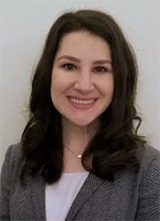Personal Statement
I am a Professor of Psychiatry and Director of the Addictions Division in the Department of Psychiatry and Behavioral Sciences at the University of Washington School of Medicine in Seattle, Washington. I am also the clinical director of addictions treatment services at Harborview Medical Center, and work in the psychiatric rehabilitation and recovery services.
I am board-certified in Psychiatry by the American Board of Psychiatry and Neurology with Added Qualifications in Addiction Psychiatry, and the American Board of Addiction Medicine. A Distinguished Fellow of the American Psychiatric Association and a Fellow of the American Society of Addiction Medicine, I am on the editorial board and a reviewer for several scientific journals and holds a number of research grants from the National Institute of Health.

Personal Statement
I focus on neurodegeneration and traumatic brain injury research at the VA Puget Sound and at the UW Alzheimer’s Disease Research Center.
My work has probed the ‘glymphatic’ system, a brain-wide network of perivascular spaces that facilitates the clearance of waste products, including amyloid beta and tau, from the brain interstitium during sleep. Previously at OHSU, my group demonstrated that the glymphatic system fails in the aging brain and in the young brain after traumatic brain injury. The studies suggest that impairment of glymphatic function may be one factor that renders the aging brain vulnerable to protein aggregation and neurodegeneration and may link brain trauma early in life with the development of dementia in the decades that follow. My ongoing work seeks to define the molecular and cellular underpinnings of impaired glymphatic function in the aging and post-traumatic brain, and to use novel MRI-based imaging approaches to extend these findings into clinical Alzheimer’s disease and post-traumatic populations.
As the leader of the ADRC’s new Research Education Component, I oversee the effort to train and develop a community of clinical, basic and translational Alzheimer’s disease researchers with the necessary clinical, scientific and technical competence to effectively collaborate to define the mechanistic and biological underpinnings of Alzheimer’s and related dementia, and to translate this understanding to improve the lives of those living with memory loss and dementia.

Personal Statement
I am an investigator in the Seattle-Denver Center of Innovation for Veteran-Centered and Value-Driven Care and Associate Director of the Seattle Center of Excellence in Substance Abuse Treatment and Education (CESATE), one of two national VA centers devoted to improving the quality of care and clinical outcomes of veterans with substance use conditions. I am also a licensed clinical psychologist in Washington State. My primary research interests include evaluating and improving behavioral health and substance use outcomes of Veterans with alcohol and/or drug misuse conditions. I received his PhD from Brigham Young University.
My primary research interests include evaluating and improving behavioral health and substance use outcomes of Veterans with alcohol and/or drug misuse conditions. Ongoing research interests include prevention of alcohol misuse among Veteran populations and development of a collaborative care management intervention for patients with complex, recurrent substance use disorders and high utilization of hospital services. Current projects include evaluating collaborative care management approaches for treating Veterans with complex and chronic substance use disorders, estimating the relative risks of serious adverse events among Veterans with PTSD who are prescribed opioids and benzodiazepines concurrently, evaluating clinical decision support interventions to reduce concurrent use of opioid and benzodiazepine medications among high-risk Veterans and validation of quality indicators for recognition and management of problematic alcohol use, and assessing the recognition and management of alcohol misuse among OEF/OIF Veterans with and without TBI.
Personal Statement
I am a board certified child and adolescent psychiatrist in the Pediatric Clinic at Harborview, Seattle Children’s Hospital, and Odessa Brown Children’s Clinic in the Division of Psychiatry and Behavioral Medicine.
In my clinical work, I strive to create active partnerships with my patients and their families to achieve the best possible outcomes regardless of their needs and circumstances. I am lucky to have great behavioral health and primary care partners across the different clinics I work in, who are invaluable collaborators in caring for our patients and families.
I am involved in the child and adolescent training program and supervises trainees at several outpatient clinics. My clinical and research interests include integrating mental healthcare into primary care settings, ADHD, disruptive behaviors, aggression, trauma-related disorders, and improving clinical supervision of child and adolescent psychiatry trainees.

Personal Statement
The overall goal of my research program is to use a multi-level approach, combining molecular biology, anatomy, genetics and behavioral neuroscience, to understand the role of cortico-basal ganglia circuitry in the development of behaviors that are associated with drug reward and addiction, as well as in the processes that underlie decision-making, motivation and impulsivity.
To accomplish these goals, my laboratory employs a novel chemical-genetic approach that uses viral vectors to express artificial, engineered G-protein coupled receptors (known as DREADD receptors) in discrete neuronal cell populations in rodents. Activation of DREADD receptors by the otherwise inert synthetic ligand clozapine-N-Oxide will lead to transient alterations in neuronal activity (either increasing or decreasing cell function depending on which G-protein coupled DREADD receptor is expressed) of the targeted cell populations. This neuronal modulation can be paired with specific phases of the behaviors that we study, including psychostimulant-induced behavioral sensitization, drug self-administration and operant learning tasks, in order to parse out the neural circuitry that contributes to behaviors associated with addiction and other neuropsychiatric disorders.

Personal Statement
I am a licensed psychologist and Assistant Professor in the Department of Psychiatry and Behavioral Sciences at the University of Washington. I received my Ph.D. from the University of Missouri, completed clinical psychology internship at the University of Washington, and subsequently was awarded an NIH-funded postdoctoral fellowship focused on brief interventions for reducing young adult alcohol use. I joined the University of Washington faculty in 2019.
My research centers on developing and testing brief prevention and intervention programs for adolescent and young adult substance misuse (including alcohol and cannabis), and co-occurring mental health concerns such as depression, PTSD, loneliness, using substances to cope with negative affect. These programs are delivered across a variety of platforms (text message, web-based, web-conferencing, in-person face-to-face) to facilitate accessibility. To inform intervention development, my work also examines etiological and contextual factors related to substance misuse and mental health, including loneliness, depression, coping motives, and barriers to accessing mental health services.
I have served as Principal Investigator on research funded by the National Institute of Alcohol Abuse and Alcoholism, as well as other grants from the University of Washington. Clinically, I work with children and adolescents presenting with depression and suicidality at Seattle Children’s Hospital in the Behavioral Health Crisis Care Clinic and in the Mood and Anxiety Program.
- Recent Grants:
- We are currently enrolling young adults ages 21-29 in Project MAX: https://sites.uw.edu/projectmax/
- Development of a behavioral economic intervention with personalized resource allocation feedback to reduce young adult alcohol misuse (PI: Cadigan, NIH/NIAAA1R34AA029478)
- Development of an interactive, we-based drinking to cope intervention and tools to assess coping skill utilization (PI: Cadigan, NIH/NIAAA R34AA028074)

Personal Statement
My research is focused on (1) developing innovative mHealth assessments and interventions for schizophrenia-spectrum disorders and cross-diagnostic persecutory ideation, as well as (2) “engagement mHealth,” or the development of mobile health interventions that increase the likelihood that underserved populations present to and receive evidence-based treatment, with a particular focus on young adults at risk for psychosis and their families. My research is supported by a NARSAD Young Investigator Award from the Brain and Behavior Research Foundation and multiple grants from NIMH including a K23 Mentored Patient-Oriented Research Career Development Award.
Prior to my faculty position at UW, I was an Advanced Fellow in VA Health Services Research and Development and the Department of Health Services at UW. I completed my clinical psychology internship at the VA Puget Sound Health Care System, where I was awarded the APA Division 18 Outstanding VA Trainee Award. Prior to internship, I completed my undergraduate and doctoral training at the University of North Carolina at Chapel Hill. Throughout my training, I have been dedicated to services for individual with serious mental illness, with experience in an inpatient state hospital, VA psychosocial rehabilitation, intensive outpatient and dual-diagnosis clinics, and in coordinated specialty care for young people with early psychosis.
In addition to my program of research and clinical work, I am committed to clinical supervision and training. I currently lead the development of one of the first clinical training sequences designed for frontline clinicians integrating mHealth into community mental health. I was the first-ever graduate student to win UNC’s David Galinsky Award, an honor recognizing excellence in clinical supervision that had previously only ever been won by faculty. I am currently active in providing supervision in CBT to third-year psychiatry residents at UW.

Personal Statement
My program of research focuses on understanding how psychological, social, and situational factors influence young adult substance use and also the development of brief interventions for young adults. In particular, my research investigates processes influencing substance use behaviors from day-to-day or moment-to-moment. I use different types of daily-level or ecological momentary assessment (EMA) designs to elucidate why and how substance use varies across different occasions for a given individual in relation to changes in cognitions and contextual characteristics. My program of research enhances our knowledge of the etiology of substance misuse to inform the refinement and development of brief personalized feedback interventions as well as real-time interventions.
I am currently Multiple Principal Investigator (MPI Fairlie/Ramirez) of a NIAAA-funded grant (R34AA027302) developing two versions of an online personalized feedback intervention that focuses on alcohol cue reactivity among young adult drinkers; the study includes a lab component with an alcohol cue reactivity session as well as an EMA component (daily surveys up to 4x/day over 17 days). In addition, I am the PI of a NIDA-funded grant (R21DA050131) that investigates marijuana-specific self-regulation processes in relation to marijuana use and consequences both across days and throughout the day to identify how psychological states and contextual factors influence these self-regulation processes using an EMA design (daily surveys 4x/day over 2 weeks). As PI, I completed data collection for a grant that examines unplanned heavy drinking, protective behavioral strategies, and alcohol-related consequences using daily surveys administered over eight consecutive weekends (NIAAA; R21AA024156).










